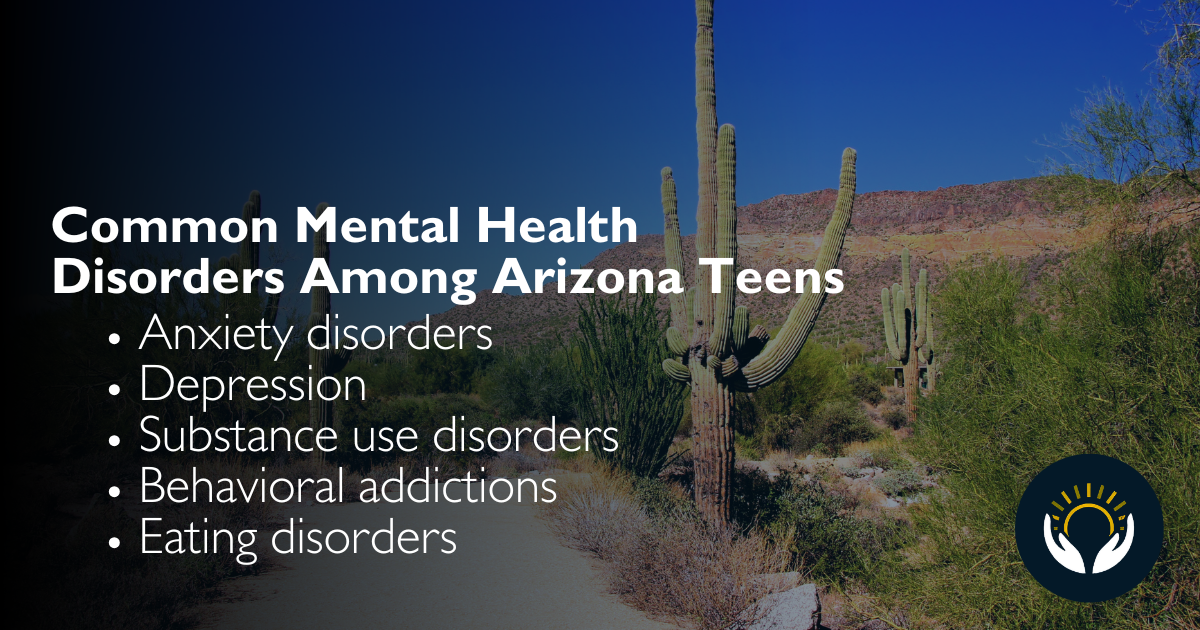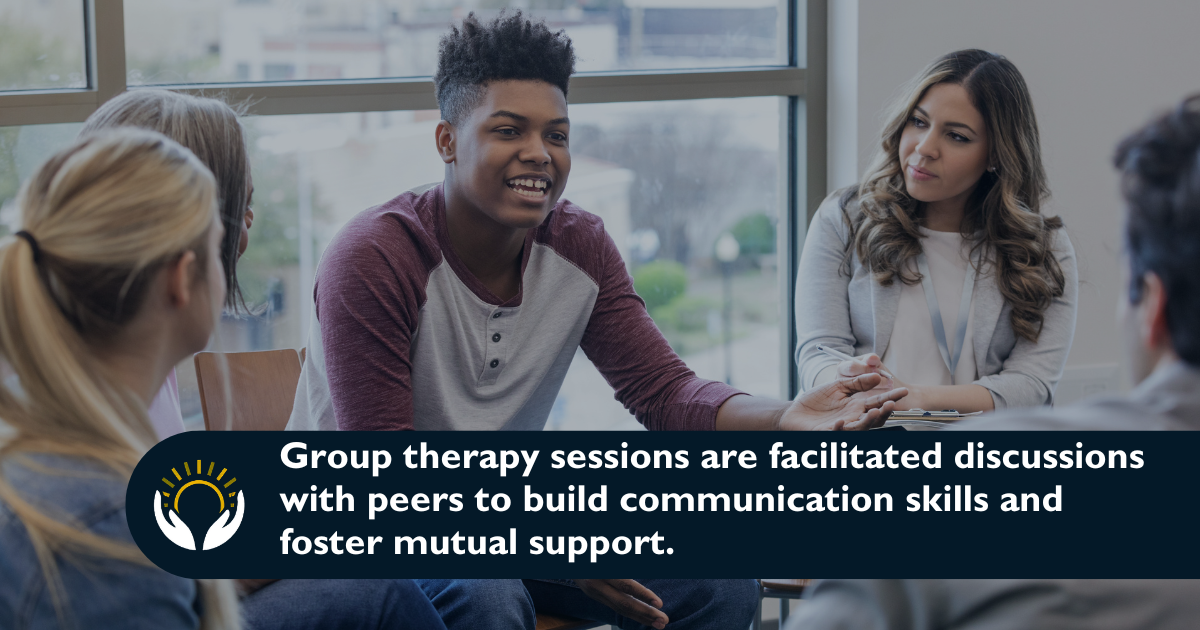
Teen Mental Health Challenges in Arizona

Teen Mental Health Challenges in Arizona
Adolescence is a pivotal time in a young person’s life, filled with self-discovery, growth, and challenges. However, for many teenagers, this journey includes mental health struggles. These issues can affect their growth and overall well-being.
In Arizona, the unique environmental, cultural, and social factors contribute to a complex landscape for teen mental health. As families seek solutions, residential treatment centers in AZ and other mental health resources play a vital role in providing the necessary care and support.
In this article, we’ll explore the mental health challenges faced by teenagers in Arizona, the importance of addressing these issues, and the role of residential mental health facilities in helping teens overcome their struggles.
The State of Teen Mental Health in Arizona
Mental health challenges for teenagers are on the rise nationwide, and Arizona is no exception.
According to recent statistics, approximately one in five teens in the United States experiences a mental health condition. In Arizona, the numbers are particularly concerning because of high rates of poverty, limited access to healthcare, and social isolation in rural areas. These challenges often exacerbate mental health issues, leaving many teens and their families searching for effective solutions.

Common Mental Health Disorders Among Arizona Teens
- Anxiety Disorders: Anxiety is one of the most prevalent mental health issues among teens. From academic pressures to social challenges, many Arizona teens face heightened levels of stress.
- Depression: Depression is another significant concern, often leading to feelings of hopelessness, withdrawal, and even suicidal thoughts. The intense desert heat and long summers in Arizona can contribute to seasonal affective tendencies for some teens.
- Substance Use Disorders: Experimentation with drugs and alcohol is a common challenge for teenagers. In Arizona, substance misuse can be exacerbated by access to certain substances and the stressors of daily life.
- Behavioral Addictions: Behavioral addictions, such as excessive phone use or gaming, are on the rise. These addictions can hinder a teen’s ability to focus on academics, maintain relationships, and engage in healthy activities.
- Eating Disorders: Teens in Arizona may struggle with eating disorders such as anorexia, bulimia, or binge eating. These conditions often stem from societal pressures and low self-esteem.
Unique Challenges for Teenagers in Arizona
While teens across the country face many similar challenges, Arizona’s environment and cultural landscape create unique hurdles:
- Rural Isolation: Many families live in remote areas of Arizona where access to mental health care is limited. Isolation can increase feelings of loneliness and exacerbate mental health issues.
- Economic Struggles: With Arizona’s poverty rate higher than the national average, financial stress can contribute to family instability and teen mental health challenges.
- Cultural Pressures: Arizona’s diverse population includes many indigenous and Hispanic families. Cultural stigmas around mental health can make it difficult for teens to seek help.
- Climate Effects: Arizona’s extreme heat and long summers can lead to decreased outdoor activity and social engagement, which may negatively impact mental health.
The Role of Residential Treatment Centers in Arizona
For many struggling teens, outpatient therapy and school counseling services may not provide enough support. Residential mental health facilities in Arizona offer a comprehensive, immersive approach to treatment, addressing the root causes of mental health challenges while equipping teens with the tools they need to thrive.
What Are Residential Treatment Centers?
Residential treatment centers (RTCs) are facilities where teens live on-site for a set period, receiving intensive therapy and support. These centers provide a structured environment with access to mental health professionals, group therapy sessions, and academic programs tailored to each teen’s needs.
Why Choose Residential Mental Health Facilities in Arizona?
- Specialized Care: Arizona’s residential treatment centers offer programs specifically designed for teens. These programs address a wide range of issues, from anxiety and depression to substance use disorders and behavioral addictions.
- Tranquil Settings: Many facilities are located in serene environments, such as the outskirts of Phoenix or in Northern Arizona’s cooler regions. These peaceful surroundings can help teens focus on healing without the distractions of their everyday lives.
- Cultural Sensitivity: Arizona’s residential programs often incorporate culturally appropriate therapies, which can be particularly beneficial for indigenous and Hispanic teens.
- Integrated Academics: Residential programs ensure that teens don’t fall behind in their education. With small class sizes and personalized support, teens can keep up with their studies while focusing on mental health.
Services Offered by Teen Residential Programs
Residential treatment centers in AZ provide a variety of services, including:
- Individual Therapy: One-on-one sessions with licensed therapists to address specific mental health challenges.
- Group Therapy: Facilitated discussions with peers to build communication skills and foster mutual support.
- Family Therapy: Sessions that involve parents and caregivers to improve family dynamics and ensure a supportive home environment post-treatment.
- Life Skills Training: Teens learn essential skills such as stress management, conflict resolution, and healthy coping mechanisms.
- Recreational Therapy: Activities like art, music, and outdoor adventures help teens build confidence and discover healthy outlets for self-expression.

Signs Your Teen May Need Help
Recognizing the signs of mental health challenges is the first step in getting your teen the help they need. If you notice any of the following behaviors, it may be time to consider seeking support from a residential mental health facility:
- Mood Swings: Intense, frequent mood changes that go beyond typical teenage angst.
- Decline in Academic Performance: Sudden drops in grades or loss of interest in school.
- Social Withdrawal: Isolating from friends and family or abandoning previously enjoyed activities.
- Changes in Sleep Patterns: Difficulty sleeping, excessive sleeping, or frequent nightmares.
- Unexplained Physical Symptoms: Headaches, stomachaches, or other symptoms without a clear cause.
- Substance Use: Experimentation or regular use of drugs and alcohol.
- Secretive Behavior: Unusual levels of secrecy or reluctance to share information.
- Neglected Appearance: Sudden lack of interest in hygiene or personal grooming.
- Excessive Screen Time: Behavioral addictions, such as compulsive phone use or gaming, that interfere with daily life.
- Frequent Anger or Irritability: Persistent frustration that seems disproportionate to the situation.
Choosing the Right Residential Treatment Center
When selecting a residential treatment center for your teen, it’s essential to consider several factors:
- Accreditation and Licensing: Ensure the facility is licensed and accredited by reputable organizations.
- Qualified Staff: Look for centers with licensed therapists, counselors, and medical professionals who specialize in adolescent mental health.
- Customized Programs: The best teen residential programs tailor their approach to meet the unique needs of each individual. This means a personalized treatment plan to combat your teen’s mental illness or substance abuse.
- Family Involvement: Effective programs include family therapy and keep parents involved in their teen’s progress.
- Aftercare Support: Transitioning back to daily life is critical. Choose a center that provides aftercare planning and ongoing support.
How Horizon Recovery Supports Teen Mental Health
Horizon Recovery is one of the leading providers of teen mental health care in Arizona, offering both outpatient and residential treatment programs.
Here’s how Horizon Recovery stands out:
- Comprehensive Services: From therapy and life skills training to academic support, Horizon Recovery’s programs are designed to address every aspect of a teen’s well-being.
- Safe and Supportive Environment: Teens are cared for in a nurturing setting where they can focus on healing.
- Holistic Approach: Horizon Recovery emphasizes the importance of treating the whole person, integrating physical, emotional, and social well-being.
- Experienced Team: The staff includes licensed therapists, counselors, and educators with expertise in adolescent care.
Don’t Face Teen Mental Health Challenges Alone
Teen mental health challenges in Arizona require a compassionate and proactive approach.
Whether your teen is struggling with anxiety, depression, behavioral addictions, or other issues, help is available. Residential treatment centers in AZ offer a safe, structured environment where teens can begin their journey toward healing and growth.
If your teen is showing signs of distress or if you’ve been searching for a “teen mental hospital Arizona” or “residential treatment centers AZ,” Horizon Recovery is here to help. With specialized teen residential programs and a commitment to providing the highest standard of care, we’re ready to guide your family through this challenging time.
Contact Horizon Recovery today to learn more about our residential mental health facilities in Arizona and how we can support your teen’s journey to better mental health.
More posts like this
No items found.
.svg)
Guiding your teen’s path to mental clarity, sobriety, and a hopeful future.
For more information or to schedule a visit, please reach out to us today. Our empathetic and caring team is here to support you every step of the way.
.svg)
.avif)
.svg)
.svg)